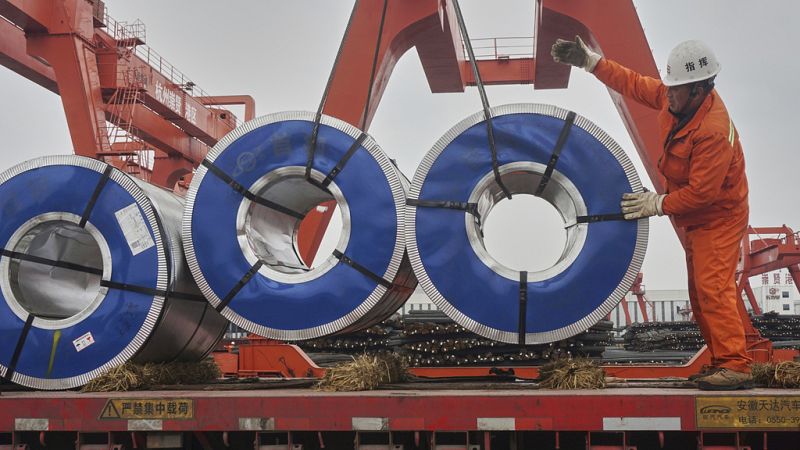Commission watching for Chinese steel and electronics imports amid trade war

The side effect of tariffs is overcapacity, and European Commission officials describe the journey that products subject to tariffs are likely to make from previously attractive US markets towards European shores as “dynamic”.
“There might be trade diversion, with some countries which can no longer export their goods to the US choosing alternative markets,” an EU senior official said.
“Of course we [the EU] will be ready to defend our market, we are not going to absorb whatever volume and quantity,” this official added.
China is in the EU's sights after its imports to the US were hit on Wednesday by 54% cumulative US tariffs. Its steel is likely to be one of the overcapacity products to spill onto the EU market, especially in view of the faltering domestic Chinese construction sector. “Steel has not been able to be consumed domestically in China,” the same senior official said, pointing the risk of diversion towards the EU.
Chinese and EU steel was already hit by 25% tariffs which came into force mid-March. OECD data of 1 April found global steel excess capacity is expected to grow from an estimated 602 million tonnes in 2024 to 721 million tonnes by 2027. It represents over five times the bloc's steel production, according to Eurofer, the European association representing the steel industry.
Other Chinese products are also expected to seek new routes to market the EU. “Electronic devices and renewables, such as solar panels or wind turbines also represent a risk for the EU,” Alicia García Herrero, expert from the Bruegel think tank, told Euronews. Electric Vehicles, which are already subject to EU tariffs since November 2024, are also on the list of products that could be subject to overcapacities, she added.
The Commission plans to step up its surveillance of global markets when reciprocal US tariffs come into force for China and other countries across the globe on 5 and 9 April.
“For China, we have been there before in the steel sector, in particular when the US in 2017 closed its market to Chinese imports. At the time we adopted safeguard measures,” said the EU official.
Safeguard measures, authorised under WTO rules, make it possible to reduce imports of certain products in the event of a sudden influx of a product on a given market.
“We have that for steel for a while. It’s too early to say whether we’ll need it for other sectors. We are looking closely,” the official added.
Today

